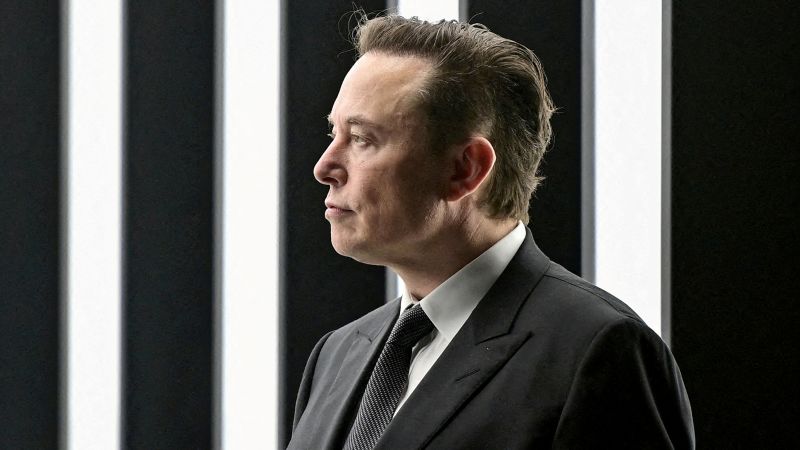Why Elon Musk is no longer Wall Street's darling



Could Wall Street’s love affair with Elon Musk be over?
Six months ago Tesla (TSLA) shares were flying high. The company was valued at $1.1 trillion — more than a dozen other top automakers combined — and announcing plans for a proposed stock split.
Then Musk disclosed he had become the largest investor in Twitter (TWTR), followed shortly by an announcement of his plans to buy control of the social media company.
Things haven’t been the same for Tesla shares since.
And although Musk’s efforts to buy — then avoid buying — Twitter, have raised investor concerns about a loss of focus by the EV-maker’s all-important CEO, it’s not the only problem for Tesla.
Tesla has faced performance issues with supply chain delays and shutdowns in China causing production bottlenecks, leading to a disappointing third quarter sales report Sunday that fell well short of Wall Street expectations.
On Friday, shares were down 27% from April 1, the day before Musk’s investment in Twitter was disclosed. And they were down another 8% in midday trading Monday following the sales report.
Critics of Tesla have long argued the stock’s incredible runup — shares rose nearly 1,900% from when the company finally achieved profitability in the fall of 2018 to its peak price in early April — was never justified. And they say the current problems are a sign of future setbacks to come with the stock.
“In general, very bad things happen when production slows, prices drop and the market is crediting you with a forward price to earnings multiple of 45.3 times earnings estimates,” said analyst Gordon Johnson, one of the biggest Tesla bears on Wall Street.
But Tesla fans on Wall Street predict that the company is still well positioned as demand grows for electric vehicles.
“In a nutshell, this quarter was nothing to write home about and the Street will be disappointed by the softer delivery number in the third quarter” said Daniel Ives, tech analyst with Wedbush Securities. “That said, we view this more of a logistical speed bump rather than the start of a softer delivery trajectory.”
Tesla spent last Friday showing off its latest robots, and in a series of tweets over the weekend, Musk was again promising that its robot business would transform the company’s sales and profitability. Ives said the timing of the company’s AI day was bad for the stock’s valuation.
“Even though it’s visionary, I think it’s not reading the room. There’s a view he’s not focused on what needs to be done right now,” said Ives. “It’s not a great look for Wall Street when you do an AI Day on Friday and have a delivery miss on Sunday.”
But this is not the first time that Musk’s comments have caused problems for the stock’s value over the last six months.
Two new plants Tesla opened in Texas and Germany were described by Musk as “gigantic money furnaces,” burning through billions in cash as they struggled to ramp up production. He even mentioned the risk of bankruptcy in one interview.
As if all of that hasn’t been enough of a headwind for Tesla shares, Musk came out and said in June he had a “super bad feeling” about the economy and announced plans to trim salaried staff.
A woman walks past the front window of a Tesla Store in Shinjuku, Japan on June 24, 2022.
Tesla delivered 343,000 cars in the third quarter, falling short of forecasts
“Musk has put fuel into a fire, and the Twitter fiasco has added to what has been a nightmarish six months for the stock,” Ives said.
But the problems for Tesla shares aren’t unique.
Many of the other high flying tech stocks have suffered similar declines in the last six months. The market turned bearish as central banks around the globe sent interest rates soaring, prompting worries about a possible global recession.
Apple (AAPL) shares fell 21% over the second and third quarters, while shares of Google (GOOG) parent Alphabet tumbled 31%, and Facebook parent Meta (FB) plunged 39%. Amazon (AMZN) shares lost 31%.
That market environment makes it all the more critical that Tesla improve its execution as a way to assure investors its stock value isn’t all smoke and mirrors.
“You need to execute to keep faith among growth investors,” Ives said. “The last two quarters, they haven’t lived up to that standard.”
Source: CNN Technology










.jpg)